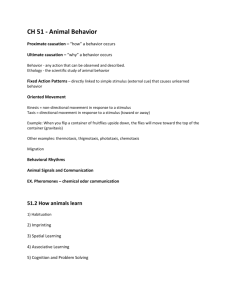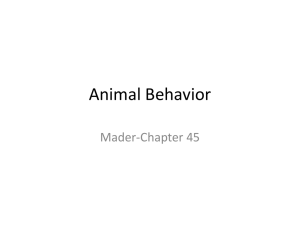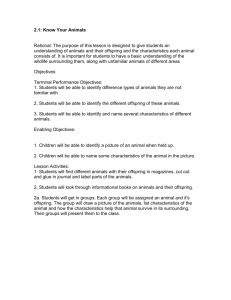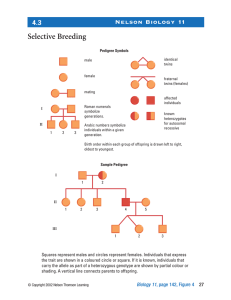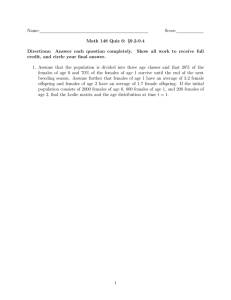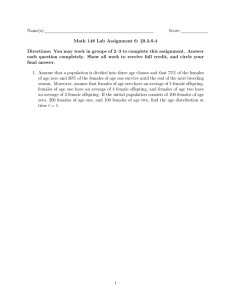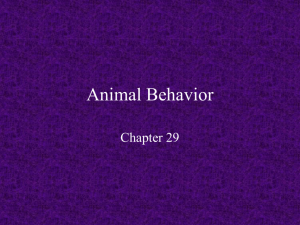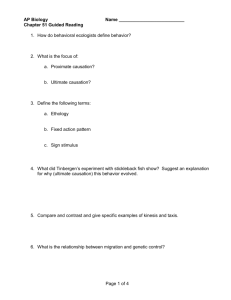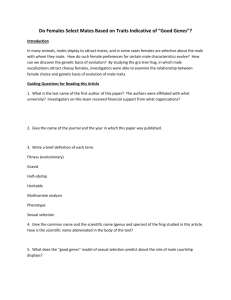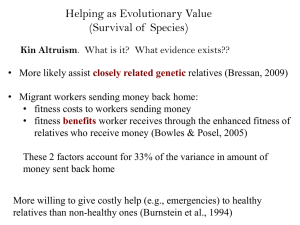Student Handout Animal Behavior
advertisement
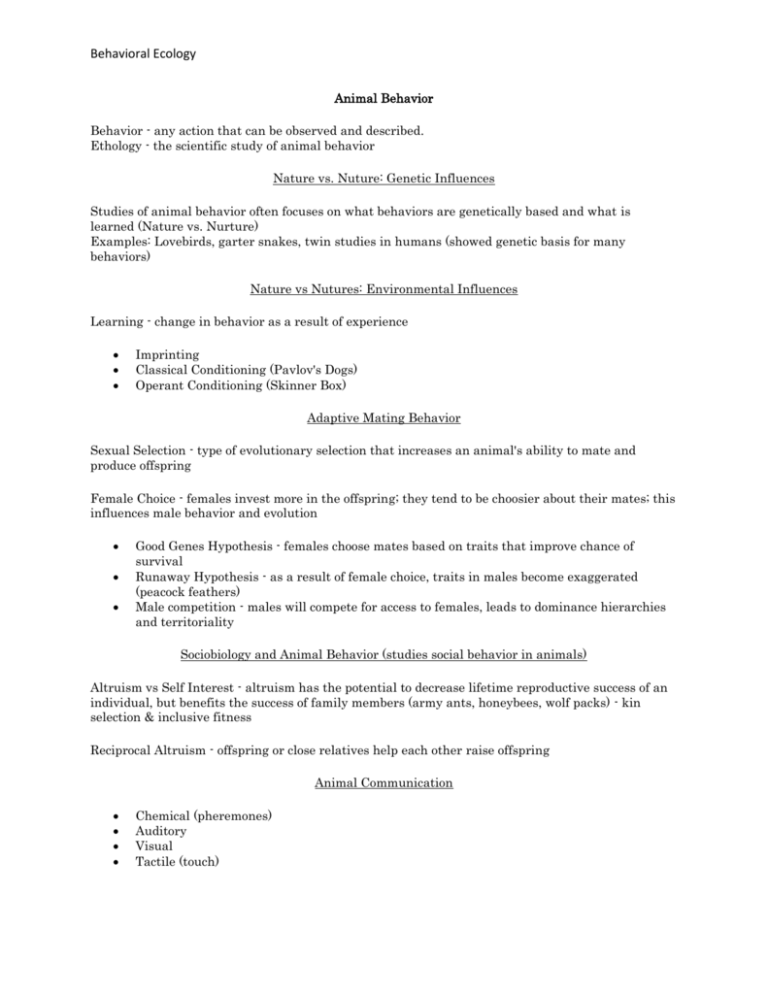
Behavioral Ecology Animal Behavior Behavior - any action that can be observed and described. Ethology - the scientific study of animal behavior Nature vs. Nuture: Genetic Influences Studies of animal behavior often focuses on what behaviors are genetically based and what is learned (Nature vs. Nurture) Examples: Lovebirds, garter snakes, twin studies in humans (showed genetic basis for many behaviors) Nature vs Nutures: Environmental Influences Learning - change in behavior as a result of experience Imprinting Classical Conditioning (Pavlov's Dogs) Operant Conditioning (Skinner Box) Adaptive Mating Behavior Sexual Selection - type of evolutionary selection that increases an animal's ability to mate and produce offspring Female Choice - females invest more in the offspring; they tend to be choosier about their mates; this influences male behavior and evolution Good Genes Hypothesis - females choose mates based on traits that improve chance of survival Runaway Hypothesis - as a result of female choice, traits in males become exaggerated (peacock feathers) Male competition - males will compete for access to females, leads to dominance hierarchies and territoriality Sociobiology and Animal Behavior (studies social behavior in animals) Altruism vs Self Interest - altruism has the potential to decrease lifetime reproductive success of an individual, but benefits the success of family members (army ants, honeybees, wolf packs) - kin selection & inclusive fitness Reciprocal Altruism - offspring or close relatives help each other raise offspring Animal Communication Chemical (pheremones) Auditory Visual Tactile (touch)
